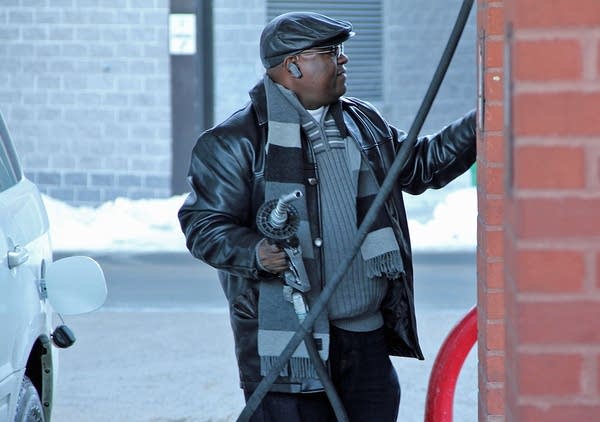House roads plan includes higher gas tax

Go Deeper.
Create an account or log in to save stories.
Like this?
Thanks for liking this story! We have added it to a list of your favorite stories.
The House DFL bill would raise more than $350 million over the next four years by raising the motor fuels tax by about 5 cents per gallon over that time. The increase would not come all at once, but rather in stages that would continue into the future. The automatic increases would come through indexing the tax to inflation.
“Look, you can pay a penny now or a lot more later,” said Rep. Frank Hornstein, DFL- Minneapolis, who chairs the House transportation committee, adding that indexing is a way to keep up with costs of construction.
Hornstein described it as a different approach than past proposals, including when DFL Gov. Tim Walz pushed unsuccessfully in 2019 for a 20-cent gas tax increase.
“We’re trying to find common ground. We’re trying to govern,” Hornstein said. “To simply say that we can ignore inflation and not put any new additional revenue in the system is very short sighted and it ignores the profound infrastructure crisis that we’re going through here in Minnesota and across the country.”
Turn Up Your Support
MPR News helps you turn down the noise and build shared understanding. Turn up your support for this public resource and keep trusted journalism accessible to all.
Minnesota would not be alone. The National Council of State Legislatures says 22 states and the District of Columbia have gas tax rates tied to the inflation rate.
Many interest groups support the bill and the new revenue it would raise.
John Thorson is with the Laborers’ International Union of North America, which represents many of the people who would work on the road and bridge projects.
“We know that Minnesota has more than 600 structurally deficient bridges and thousands of miles of roads in poor condition today, and the time to fix them is now,” he said in a committee meeting Wednesday.
Critics of the bill include business groups.
Bentley Graves of the Minnesota Chamber of Commerce said his organization opposes the bill, because it follows other proposed tax increases from the House DFL.
“Minnesota businesses don’t have the luxury of considering transportation investments and tax and labor policy separately in a vacuum,” Graves said. “These types of proposals will make it much harder for Minnesota to recover from the pandemic and fully re-engage the economic engine of our state, our vibrant private sector.”
The bill would also raise new revenue by changing the calculation on license tab fees and raising the motor vehicle sales tax. And there would also be a luxury surcharge on some higher priced vehicles.
The legislation would allow the Metropolitan Council to impose a half-cent transit sales tax increase in some parts of the Twin Cities area.
Republicans have criticized the bill for trying to raise taxes at a time of budget surplus. They also question the process.
Rep. Paul Torkelson, R-Hanska, noted that several provisions never received previous committee hearings.
“It’s unconscionable,” Torkelson said. “This is not the way the Legislature is supposed to work. We’re supposed to bring these bills forward to committee, analyze them, take testimony, submit potential amendments, have in-depth discussion. It didn’t happen.”
The Republican transportation chair in the Minnesota Senate also joined the criticism. Sen. Scott Newman, R-Hutchinson, said the House DFL wants to impose new taxes, while his plan due for a committee vote later this week would generate more money for roads and bridges through a change in the existing auto parts sales tax.
“We took some of it in 2017,” Newman said. “We are increasing it now in this budget cycle.”


